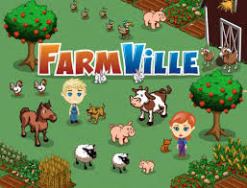
Dublin Growth Hackers is a relatively new group that has come together. It must be, because last night at the Sugar Club was the second event, as far as I know.
Disclaimer, these are the observations and impressions of a newbie, so apologies if anything is slightly inaccurate.
Like all good ideas, it seems to have been prompted by one person, Paddy Cosgrove (@paddycosgrove), giving another one a nudge, Jason Roe (@jasonroe) to do something about an idea he had been talking about for a while. You get the impression the conversation happened along the lines of,
‘don’t just talk about it, do it!,
sure if you build it no one might come,
but, it’s about growth hacking, so hack it,
use all the social media networks we have and throw it out there,
what’s the worst that will happen?
We’ll have a pile of uneaten canapes! ‘
And thus it came to be, and will hopefully continue to do so.
Jason Roe MC’d the event. He intro-ed, or out-troed all of the speakers, and reminded us of how many interesting things there are happening in Dublin already, allied with the megabeast that is the Dublin Summit (which seems like an awesome event, sigh, maybe one day…). He said there were already 130 people there, and more came in as he was speaking. This seemed like a pretty good turnout, for something that will hopefully become a monthly event.
We were at the Sugar Club, which, in the semi dark at least, looked cool and trendy. Charming waitresses walked around with trays of tasty canapes, which helped to give a tapas style feel to proceedings. Of course the bottom line though was the content, not the location.There were three speakers.
First up, was Marcus Segal, ex COO of Zynga @marcussegal
Apologies for using a google image, though it is the one he used, next time I’ll bring a camera.
Marcus took the mike with ease and rolled. He is now the entrepreneur in residence for the Dublin Web Summit, roving around European cities, meeting other start ups, and, I think, helping them, and promoting the websummit. He spoke about his early days, entertainingly describing one whole 5 year period from 2003 – 2008 with a long yawn.
Zynga was where things really kicked off. Mafia Wars beginning the period of massive growth on gaming within Facebook. In some ways there seemed to be a parallel idea of doing something different, and then if it works, doing it again and again. He described how the idea of gaming within the facebook domain was not an obvious opportunity to everyone, but at the same time the social features presented a massive opportunity.
In some ways, consciously or otherwise, they had tapped into our two fundamental powerful, and conflicting human traits, cooperation / socialising and competition. At times we can do wonderful things to help our fellow humans, and at other times, we want to be better than our peers.
Mafia Wars, and the 5 odd other reworkings of the same concept followed this idea, including Pirate Wars, Prison Wars, Creche Wars (it didn’t quite get to that but you get the idea). We want to get out there and kill the opposition, but at the same time, the more friends we have at our side, the longer we get to stay alive in the game.
So far, so well known. He asked the room how many people had played Mafia Wars or one of it’s variants. Half the room put up their hands, and he said the rest of us were liars! This was funny, I almost felt bad I had never played it. From this he explained they looked at what worked, and took these competitive and cooperative elements into developing FarmVille.
So you know all about this, but in tonight’s context it was looking at what was growth hacked. Here they seemed to follow the principal of, if it worked, do it again and again, and again. He mentioned the lost groovy cow, and how, if it worked in one game, then literally the same concept was used in every other variant of the game they developed.
Marcus was both laughing at this, taking the piss, and also pointing out that with 300 million d.a.u (new acronym for me, daily average users), it made money for them and the company.
Listening to Marcus and the following two speakers, I was constantly trying to work out what was ‘growth hacking’ and what was just smart monetisation and smart marketing. I think this might be an unnecessary question. You look around, take what works, try it out, if it works keep at it till it stops working, and then do something else.
Next was Niall Harbison @NiallHarbison
Known for several things, but here to talk about his current spin off, Lovin’ Dublin.
It was interesting to hear how the blog was trundling along, in his words, with 15 posts in 2011, and 20 in 2012, before upping the pace in 2013, and starting to go through the roof in terms of social media shares across facebook, instagram, and the wider social media environment.
Niall was entertaining to listen to, and it was interesting as he described how he wasn’t completely sure how and why the site had taken off. That said, he was predisposed to take advantage of the opportunity when it came his way. He recognised the value of using strong visuals to promote the posts, and encourage the likelihood of them to be shared.
The Lovin’ Box was their latest venture to roll out a viable business for both them and the restaurants they paired up with. In the Q & A Niall further outlined how his idea had evolved from a series of similar but all slightly different box delivery concepts that he had come across around the world. In this way, while offering no specific ‘growth hacker tools’, you get the feeling that growth hacking could be a mindset. Look around, see what works, adapt to your own area and opportunities, if it gets traction go with it.
Next up was Kieran Flanagan @searchbrat
“Highly motivated marketing geek high on data crack”.
If Niall Harbison was the minimal google analytics user, then Kieran was the uber user.
Hub spot’s EMEA Marketing Director, he followed the idea of everything of value being measurable.
Kieran’s appearance really rounded out the choice of speakers for the night, as it ensured we had a great cross section of perspectives. He mentioned a lot of great ideas, and resources to use to ensure you optimise for success, including, but not only social crawlytics. https://socialcrawlytics.com/
Kieran had a bit of a nightmare with his slide show presentation, somehow his zapper got possessed, and rapidly zoomed too far forward and backwards. However being super efficient he had already put the slides up on slide share.
http://www.slideshare.net/kflanagan/the-scrappy-guide-to-marketing
To do real justice to all of his content I suggest going through them yourself too.
Once the three speakers were done, there were more canapes, and the opportunity to mingle, network and ask questions.
I think the event was really useful, and the next one is on June 5th.







